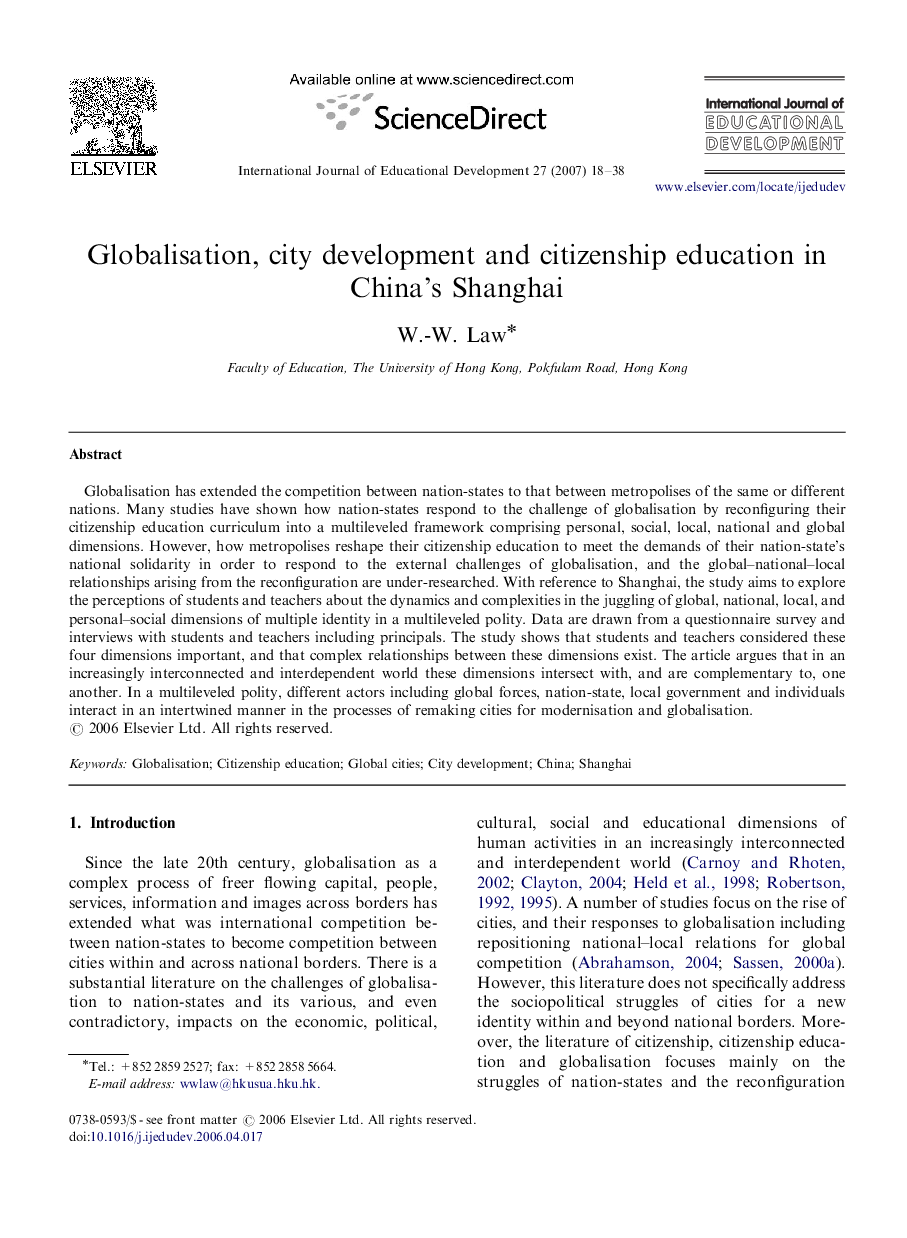| Article ID | Journal | Published Year | Pages | File Type |
|---|---|---|---|---|
| 356741 | International Journal of Educational Development | 2007 | 21 Pages |
Globalisation has extended the competition between nation-states to that between metropolises of the same or different nations. Many studies have shown how nation-states respond to the challenge of globalisation by reconfiguring their citizenship education curriculum into a multileveled framework comprising personal, social, local, national and global dimensions. However, how metropolises reshape their citizenship education to meet the demands of their nation-state's national solidarity in order to respond to the external challenges of globalisation, and the global–national–local relationships arising from the reconfiguration are under-researched. With reference to Shanghai, the study aims to explore the perceptions of students and teachers about the dynamics and complexities in the juggling of global, national, local, and personal–social dimensions of multiple identity in a multileveled polity. Data are drawn from a questionnaire survey and interviews with students and teachers including principals. The study shows that students and teachers considered these four dimensions important, and that complex relationships between these dimensions exist. The article argues that in an increasingly interconnected and interdependent world these dimensions intersect with, and are complementary to, one another. In a multileveled polity, different actors including global forces, nation-state, local government and individuals interact in an intertwined manner in the processes of remaking cities for modernisation and globalisation.
